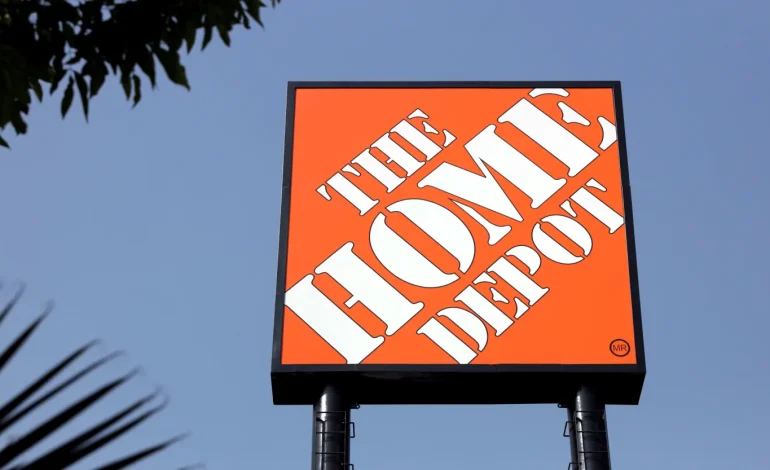Home Depot (HD) reported better-than-expected earnings and revenue for the third quarter on Tuesday, driven by its recent acquisition of SRS Distribution, hurricane-related repairs, and unseasonably warm weather across parts of the US.
The home improvement giant raised its full-year revenue outlook, yet highlighted that economic challenges continue to weigh on consumers’ purchasing behavior.
For the three-month period ending October 27, Home Depot recorded $40.22 billion in revenue, a 6.6% increase year-over-year, surpassing analysts’ predictions of $39.32 billion. Earnings per share landed at $3.67, slightly above the anticipated $3.64, even as the company’s net income dipped from $3.81 billion in the same quarter last year to $3.65 billion.
The company attributed this boost in part to its acquisition of SRS Distribution, a major supplier for professional roofers, landscapers, and pool contractors. SRS contributed roughly $6.4 billion to Home Depot’s sales, aligning with the retailer’s strategic push into the professional sector to balance out DIY customer demand. This acquisition, coupled with an uptick in demand from hurricane-related repairs and favorable weather conditions, added a half-percentage point to sales growth as shoppers bought supplies like plywood, generators, and other home repair essentials.
Despite the stronger-than-expected performance, Home Depot warned that economic uncertainty and high interest rates continue to dampen consumer enthusiasm for discretionary spending and major home projects. Home Depot’s Chief Financial Officer, Richard McPhail, noted that while many homeowners are financially stable, they are deferring larger renovation projects, hoping for a drop in mortgage rates and overall borrowing costs.
“There is pent-up demand for projects… Our customers tell us that their lives are changing. Their families are growing. They’re upsizing, they’re downsizing, but they’re putting it on hold until they see a more favorable financing environment,” McPhail told CNBC.
Following its better-than-expected results, Home Depot raised its full-year revenue projection to a 4% increase, up from its previous estimate of 2.5% to 3.5%. This updated guidance includes contributions from an extra 53rd week in the fiscal year and the SRS acquisition.
However, Home Depot is still bracing for a slight downturn in comparable sales, expecting a 2.5% drop year-over-year for the 52-week period—a slight improvement over its previous forecast of a 3% to 4% decline. The drop in comparable sales marks the eighth consecutive quarter of declines, but the company pointed out that it has seen smaller drops in this metric over the past two quarters, suggesting that consumer spending is stabilizing, albeit cautiously.
In light of the strong quarterly report, Home Depot shares rose by more than 2% in premarket trading. The stock has increased nearly 18% in 2024, though it trails behind the S&P 500’s 26% gain this year. The stock closed Monday at $408.29 per share, giving Home Depot a market value of $405.55 billion.
Home Depot’s strategy to capture both professional and consumer segments appears to be paying off, as it opens about 12 new stores this fiscal year. Additionally, the retailer is capitalizing on seasonal trends, such as popular holiday decor items, to draw customers into stores. Viral Halloween items like the 12-foot skeleton “Skelly” and oversized Christmas decorations have driven foot traffic and online engagement, helping the retailer offset some losses in the home improvement segment.
Yet, Home Depot executives acknowledged the continued economic uncertainty that has affected their customer base. Inflationary pressures and high interest rates continue to impact discretionary spending, and housing turnover remains low—a significant headwind for the home improvement sector.
“The good news is housing turnover may not be able to get any worse,” McPhail said.
He noted the housing market’s slump over the past two years. He added that while customers may not be ready to commit to major renovations, there is a strong demand for such projects that could be “unlocked” with a more favorable economic climate.
Home Depot’s boosted full-year guidance reflects cautious optimism, but the company will continue to monitor economic factors, including potential price increases related to tariffs. Though McPhail highlighted that most of Home Depot’s sourcing comes from North America, he noted that the company is watching potential trade policy changes closely.
CNBC, the Hill, Market Watch, and Investor’s Business Daily contributed to this report.









